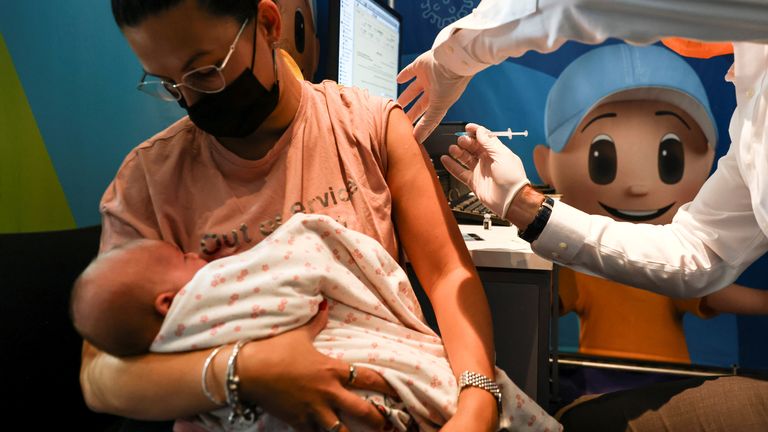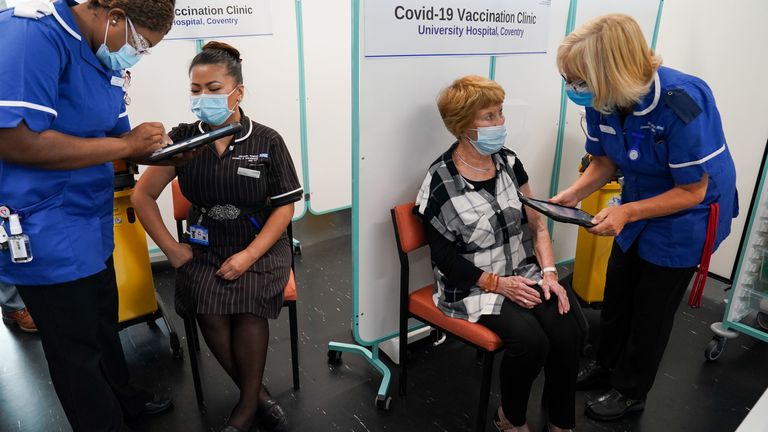New blueprint for making vaccines within 100 days could ‘save many lives’
A blueprint for making millions of doses of a new vaccine within 100 days has been published by researchers, who claim it could “save many lives”.
The new research could enable vaccines to be developed in as little as 100 days from the moment a virus is first detected – and could enable clinical trials within 60 days.
It comes as AstraZeneca Plc said on Tuesday it is working with Oxford University to produce a vaccine for the new highly-transmissible Omicron variant.
Latest COVID updates from the UK and around the world
“Together with Oxford University, we have taken preliminary steps in producing an Omicron variant vaccine, in case it is needed and will be informed by emerging data,” a spokesperson for the company said in a statement.
Researchers behind the blueprint believe their work could enable Oxford’s ChAdOx vaccines – like the Oxford/AstraZeneca COVID jab – to hit the “moonshot” objective set by the Coalition for Epidemic Preparedness Innovations (CEPI) to compress vaccine production timelines.
The paper, which has not been peer-reviewed, sets out how quickly it would be possible to manufacture a new adenovirus-vectored vaccine on a large scale.
One billion vaccine doses could be supplied within 130 days of identification of a new virus – a quarter of the time taken by the current COVID jabs – if factories were on standby to use the new method described, the team suggests.
Dr Sandy Douglas, who leads the vaccine manufacturing research group in the Jenner Institute, at the University of Oxford, said: “When a new virus is identified, vaccine production is a race against time.
“Some people think that adenovirus-vectored vaccines are slow to manufacture – and that’s just not true.”
The paper also describes how bulk manufacturing could be modified in the future to approximately quadruple the rate of vaccine production from each vaccine factory, and to further lower costs.
Dr Douglas added: “The process of bulk manufacturing, filling into vials, and testing takes pretty much the same length of time for most vaccines.
“The thing that can vary is how long it takes to prepare to start manufacturing.
Doctor dismantles typical COVID vaccine hesitancy arguments by putting forward alternative scenario
“For an adenovirus-vectored vaccine, the key bit of preparation which is needed is to make a ‘seed’ virus.
“That’s the only thing that needs to change to make a new vaccine – so we’ve looked carefully at how to make that seed quickly.
“In a pandemic, saving a few days could save many lives.”
The new process uses a method called perfusion, which the academics say is like giving the manufacturing process a kidney as it allows the removal of waste products which can slow down production.
Follow the Daily podcast on Apple Podcasts, Google Podcasts, Spotify, Spreaker.
The researchers collaborated with two equipment suppliers, Sartorius and Repligen, which provided advance access to newly developed tools.
The pre-print has been submitted to BioRxiv.




